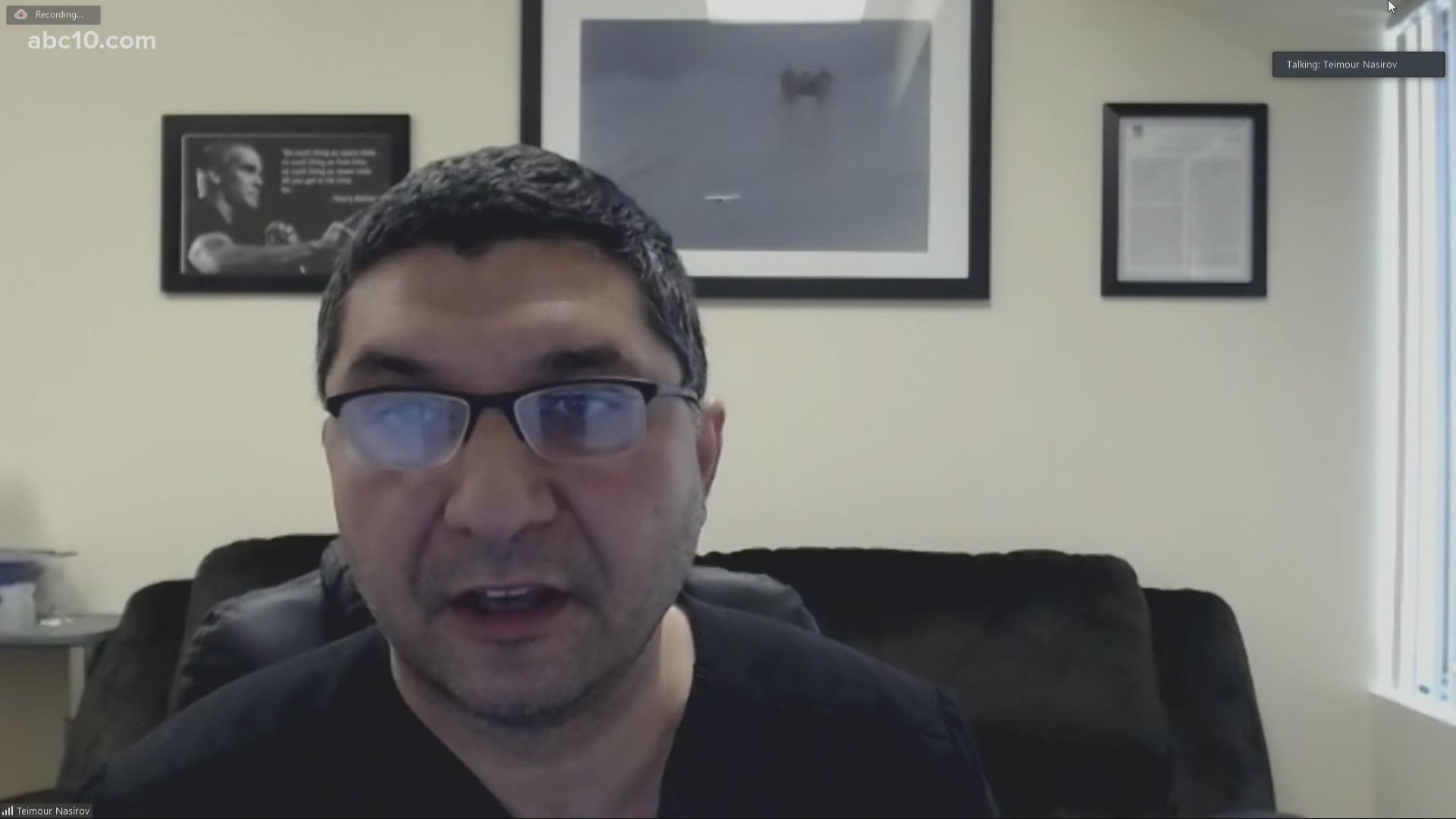SACRAMENTO, Calif. — Vaccine hesitancy is not a unique problem to any one group, but different populations are worried about vaccines for different reasons.
On Tuesday, health and community leaders met to discuss the reasons for hesitancy and possible solutions for the Russian-speaking community in the Sacramento area.
“The COVID-19 vaccination has been a hard topic to discuss in the Russian-speaking community,” admitted Nelya Hryb with the Folsom Cordova Community Partnership.
Vascular surgeon Dr. Dmitri Gelfand agreed that it has been difficult to get the community vaccines.
“I do see that the Russian community in particular in this area in Sacramento has been pretty resistant to having vaccines,” Dr. Gelfand said.
Hryb mentioned that people commented things like, 'Why advertise poison?' when she would post about information about vaccines online, but she's not surprised.
She said she grew up in the Soviet Union and remembers what people like her parents would say when they were alone.
“How little control they had in their life, how they mistrusted their government and how little information they had from medical providers and the government,” Hryb recalled.
Oksana Yarmola, a registered nurse with Sutter Health, who gives out vaccines daily, sees the same hesitancy.
“It’s a little disappointing and sad because Sacramento is such a big region where we have the Slavic community, and unfortunately, we haven’t been getting that many patients,” she explained.
Yarmola said out of the hundreds of patients she has seen, only three have been from the Slavic community.
Dr. Teimour Nasirov, a heart surgeon with Sutter Health, said he gets it, because he too was hesitant at first until he did his own research.
He said the Russian-speaking community is very caring and respectful of their families and the elderly, which could mean that defying family values by getting a vaccine could be a problem for them.
“Part of our mission is to explain to younger people that by getting vaccine, we’re really protecting the elderly,” Dr. Nasirov explained.
Dr. Dmitri Gelfand said another effective route is through the doctor-patient relationship.
“I talk to the patients when I see them and try to answer questions when they have questions about vaccines. I try to proactively bring up the discussion about the vaccines,” he explained.
Yarmola said the church could also play an important role.
“I think the Slavic community is also very religious. And I think kind of taking a more religious approach and reaching out to other leaders and the priests,” she said.
Hryb says personal perspectives are also very powerful.
“I just want to say from my personal experience I got vaccinated. And I know the coronavirus is real," she said. "And I hope all of my Russian-speaking comrades, friends and community get vaccinated too."
WATCH MORE FROM ABC10: California families start to make decisions on getting kids vaccinated against COVID-19
Parents now have to decide if they should vaccinate their kids against the virus as the FDA approves Pfizer's vaccine for kids ages 12 to 15.

